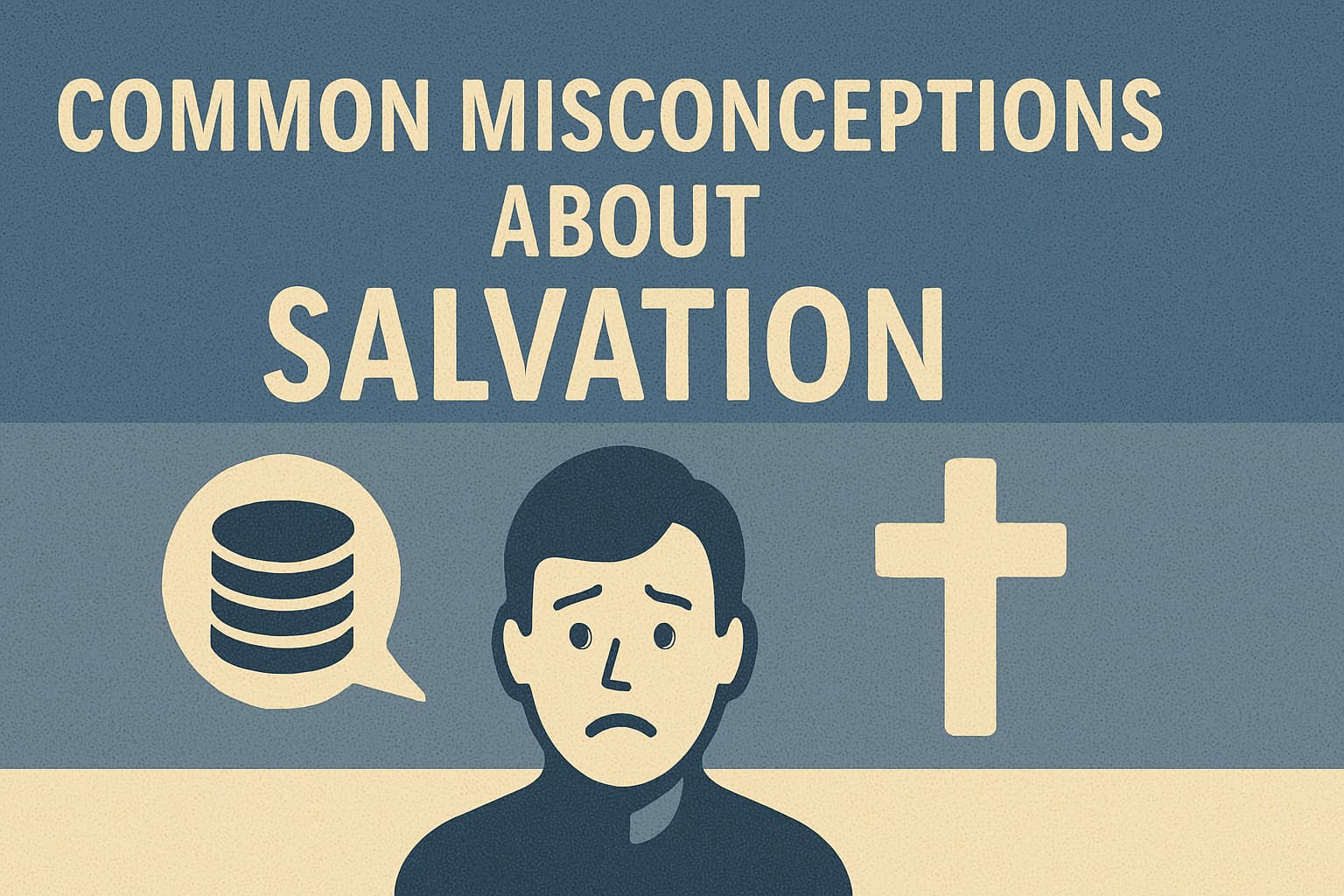A Life-and-Death Matter
Salvation is the most vital subject anyone can study. Yet, religious confusion abounds. Many well-meaning people have been taught different plans of salvation — some believe in faith-only, others have trusted in the sinner’s prayer, and some hold to the doctrine of once saved, always saved.
But are these doctrines supported by Scripture? Or are they misconceptions?
Misconception #1: Salvation is by “Faith Only”
“Just believe and you’ll be saved,” many say.
But the only time the Bible mentions faith only is to reject it:
“You see then that a man is justified by works, and not by faith only.”
— James 2:24
Yes, faith is essential (Hebrews 11:6). Without faith, no one can please God. But the Bible never teaches that faith alone saves. Saving faith is always shown to be obedient faith — a faith that acts.
Consider:
- Noah believed God but also built the ark (Hebrews 11:7).
- Abraham believed God but also offered Isaac (James 2:21-22).
- Sinners today must believe, repent, confess Christ, and be baptized (Acts 2:38; Romans 10:9-10; Acts 22:16).
Misconception #2: Say the Sinner’s Prayer to Be Saved
Millions have been told, “Accept Jesus into your heart and say the sinner’s prayer.”
Yet, search your Bible — you’ll never find such a prayer offered to alien sinners for salvation.
What did people do in the Bible when they wanted to be saved?
- In Acts 2, they asked, “What shall we do?” — and were told to “Repent and be baptized…” (Acts 2:38).
- In Acts 22:16, Saul of Tarsus was told, “Arise and be baptized, and wash away your sins, calling on the name of the Lord.”
The Bible teaches baptism, not a prayer, as the point where sins are washed away and salvation is granted (1 Peter 3:21).
Misconception #3: Once Saved, Always Saved
The idea of eternal security or once saved, always saved suggests that once you are saved, you can never be lost. Yet, Scripture gives constant warnings to Christians:
“You have become estranged from Christ, you who attempt to be justified by law; you have fallen from grace.”
— Galatians 5:4
“Be faithful until death, and I will give you the crown of life.”
— Revelation 2:10
Why would the Bible urge faithfulness, endurance, and warnings against falling away if it were impossible to do so?
What Does the Bible Actually Teach About Salvation?
The New Testament reveals God’s full plan for salvation:
- Hear the Gospel (Romans 10:17)
- Believe in Jesus Christ (Mark 16:16)
- Repent of sins (Acts 17:30)
- Confess Jesus as the Son of God (Romans 10:9-10)
- Be baptized for the remission of sins (Acts 2:38)
- Live faithfully until death (Revelation 2:10)
Any doctrine leaving out one or more of these steps is not from God.
Why Does This Matter?
“And you shall know the truth, and the truth shall make you free.”
— John 8:32
God has not left us to guess or to rely on traditions. He has provided a clear and perfect plan in His Word. Let us not be content with manmade teachings, no matter how popular they are, but return to the simple gospel.
A Loving Plea
Friend, have you been trusting in a misconception?
The truth is not found in church creeds, emotional testimonies, or denominational doctrines — it’s found in the Word of God alone.
We urge you to search the Scriptures and obey the gospel as the first Christians did (Acts 2). We would be honored to study with you personally.


0 comments